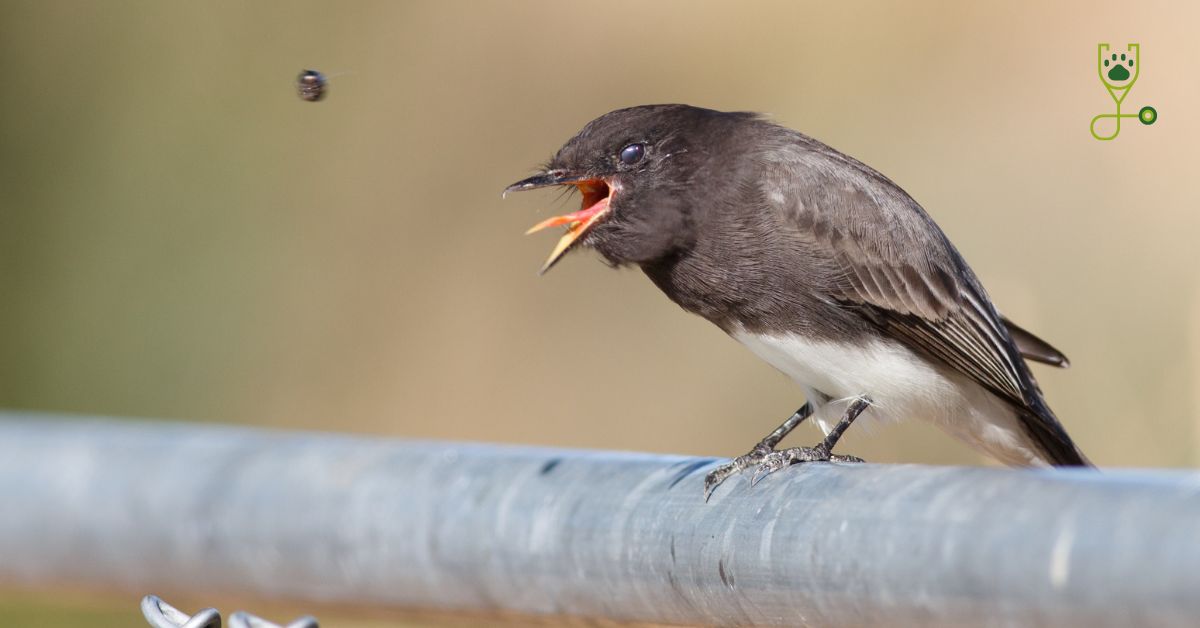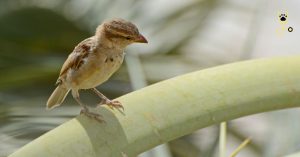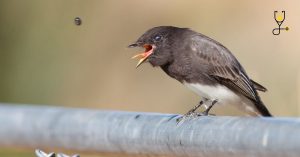Are you a proud owner of a pet bird? Are you feeling anxious because your trusted companion has recently begun to vomit or regurgitate their food? If so, then this blog post is for you! Here, we’ll share some important information on the various reasons why birds vomit and regurgitate, as well as what steps should be taken to prevent further episodes. We will also discuss recommendable treatments and provide advice on how to keep your little feathered friend healthy and happy in the long run. So read on your pet bird’s well-being could very well depend on it!
Vomiting and Regurgitating in Pet Birds
The terms “vomiting” and “regurgitating” are often used interchangeably when referring to birds, but the two conditions have distinct differences. Vomiting occurs when birds forcefully expel the contents of their crop through their mouth, while regurgitation occurs when they voluntarily bring food from the crop back up into their mouths as part of a feeding or social behavior. The difference between vomiting and regurgitating is important to understand because different ailments can cause each condition.
Causes of Pet Bird Vomiting
There are various reasons why your pet bird might be vomiting, including:
• Infections: Viral or bacterial infections that cause inflammation in the crop or digestive tract can lead to vomiting.
• Stress: Birds can experience stress from changes in their environment, problem behavior, and even being touched too much or handled incorrectly.
• Dietary Changes: Eating a diet that is too rich or not providing enough variety can also cause birds to vomit as their bodies struggle to digest new foods.
• Poisoning: Exposure to toxins such as cigarette smoke, cleaning products, medications, pesticides, and other chemicals can lead to vomiting.
• Intestinal Parasites: These parasites feed off nutrients meant for the bird’s body and can cause inflammation and upset stomach which leads to vomiting.

Causes of Pet Bird Regurgitating
Unlike vomiting, regurgitation typically occurs when a bird is attempting to feed another bird or person. Pet birds that have bonded with their owners may view them as mates, prompting the urge to “feed” them. In other cases, regurgitation can indicate an underlying medical issue such as an infection, injury, or tumor.
Read in details: 9 Causes of Regurgitation in Birds
Symptoms to Watch Out For
If your pet bird is vomiting or regurgitating, keep an eye out for the following signs and symptoms:
• Increased respiratory rate: If your bird is having difficulty breathing or panting, it could be an indication that they are experiencing a respiratory infection or distress.
• A swollen crop: This can be indicative of infection or digestive blockage and requires immediate medical attention.
• Excessive drooling or foaming at the mouth: These signs indicate pain, distress, and potential poisoning.
• Change in appetite: If your pet bird stops eating, it could mean they are sick and should be checked by a vet as soon as possible.

Treatments for Pet Bird Vomiting/Regurgitating
If your pet bird is vomiting or regurgitating, there are several treatments you can use to help them feel better. The first step is to have your bird checked by a veterinarian to rule out any underlying medical issues. Once the cause of the vomiting or regurgitating is determined, the vet can recommend treatment accordingly. In most cases, treating vomiting/regurgitating in pet birds involves providing supportive care such as warmth, fluids, and nutrition. Your vet may also prescribe antibiotics or other medications depending on the severity of your bird’s condition. Additionally, it is important to make sure they are not exposed to toxins or stressors that could worsen their symptoms.
How to Prevent Pet Bird Vomiting/Regurgitation
let’s make sure our pet birds stay healthy by following these simple tips:
• Provide a balanced diet with fresh fruits and vegetables.
• Make sure your bird has plenty of fresh water to drink.
• Keep their cages clean and free from drafts, toxins, and other stressors.
• Monitor for signs of illness such as changes in appetite, droppings, and behavior.
• Visit the vet regularly for check-ups and preventive care.
Vomiting and regurgitation can be alarming for pet bird owners, but it is important to remember that they are common occurrences in birds and can often be managed with proper veterinary care. Keeping a close eye on your bird’s health will help ensure they stay happy and healthy for many years to come. With the right care and attention, you can help your pet bird lead a long and fulfilling life!

Prognosis of Pet Bird Vomiting/Regurgitating
The prognosis for pet birds that are vomiting or regurgitating is generally good, provided they receive prompt medical attention. In most cases, the underlying cause can be successfully treated with supportive care and medications. However, it’s important to note that some illnesses such as fungal infections may require long-term treatment and monitoring. If your bird’s condition does not improve with treatment, your vet may recommend further testing to determine the exact cause of their illness. With proper care, most birds make a full recovery from episodes of vomiting and regurgitation and go on to lead happy and healthy lives! So if you ever notice any signs of vomiting or regurgitation in your pet bird, don’t hesitate to seek medical attention right away. Early detection and treatment can help ensure your pet’s health and safety!
Conclusion
Vomiting and regurgitating are common symptoms in pet birds, but they can be a sign of an underlying medical problem. It’s important to have your bird checked out by a veterinarian as soon as you notice any of the signs or symptoms associated with vomiting/regurgitating. Your vet can help diagnose the cause of the illness and provide treatment accordingly. The best way to prevent bouts of vomiting/regurgitating is to make sure your pet bird remains healthy and happy. This means providing them with proper veterinary care, maintaining a balanced diet, spending time with them every day, and keeping them away from toxins or other environmental hazards that could make them ill. With prompt medical attention and proper care, most birds make a full recovery from episodes of vomiting and regurgitating and go on to live happy and healthy lives. So don’t hesitate to seek medical attention if you think something is wrong with one of your feathered friends – early detection and treatment can help ensure their health and safety!
Frequently Asked Questions
The most common causes of vomiting and regurgitating in pet birds include bacterial infections, fungal infections, parasites, dietary imbalances, foreign objects lodged in their throat or intestinal tract, and toxin ingestion.
To prevent your pet bird from becoming ill, it’s important to provide them with proper veterinary care and a balanced diet, spend time with them every day to establish a bond and keep them feeling secure, and avoid exposing them to toxins or other environmental hazards that could make them sick.
If your bird starts vomiting or regurgitating, it’s important to seek medical attention for them right away. Your vet can help diagnose the cause of their illness and provide treatment accordingly. Early detection and treatment can help ensure your pet’s health and safety!
The prognosis for pet birds that are vomiting or regurgitating is generally good, provided they receive prompt medical attention. In most cases, the underlying cause can be successfully treated with supportive care and medications. However, it’s important to note that some illnesses may require long-term treatment and monitoring. With proper care, most birds make a full recovery from episodes of vomiting and regurgitating and go on to lead happy and healthy lives. So don’t hesitate to seek medical attention if you think something is wrong with one of your feathered friends – early detection and treatment can help ensure their health and safety!
No, it is not recommended that you attempt to treat your pet bird at home without the guidance of a veterinarian. Vomiting and regurgitation can be a sign of an underlying medical problem, so it is important to have your bird checked out by a vet as soon as possible for proper diagnosis and treatment. Home remedies are not effective or safe for birds in this condition. Prompt medical attention and proper care are the best ways to ensure that your pet bird makes a full recovery from vomiting or regurgitating.








